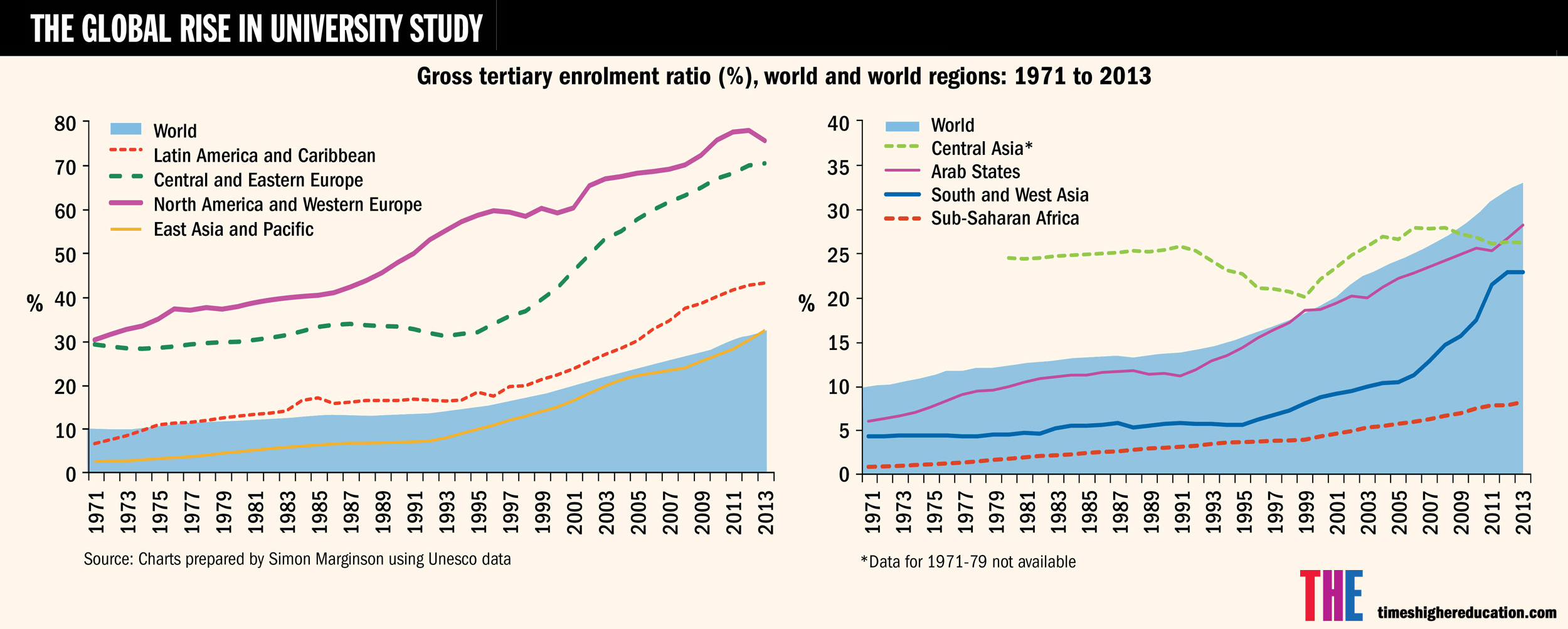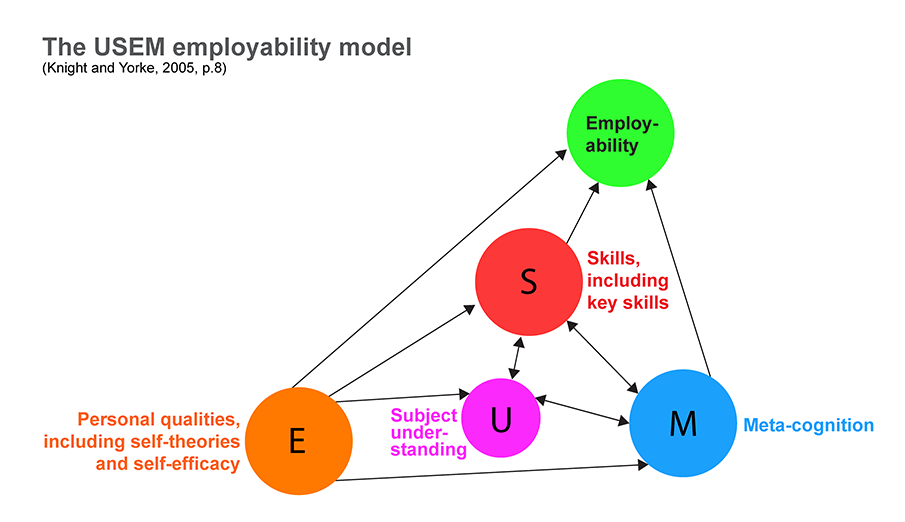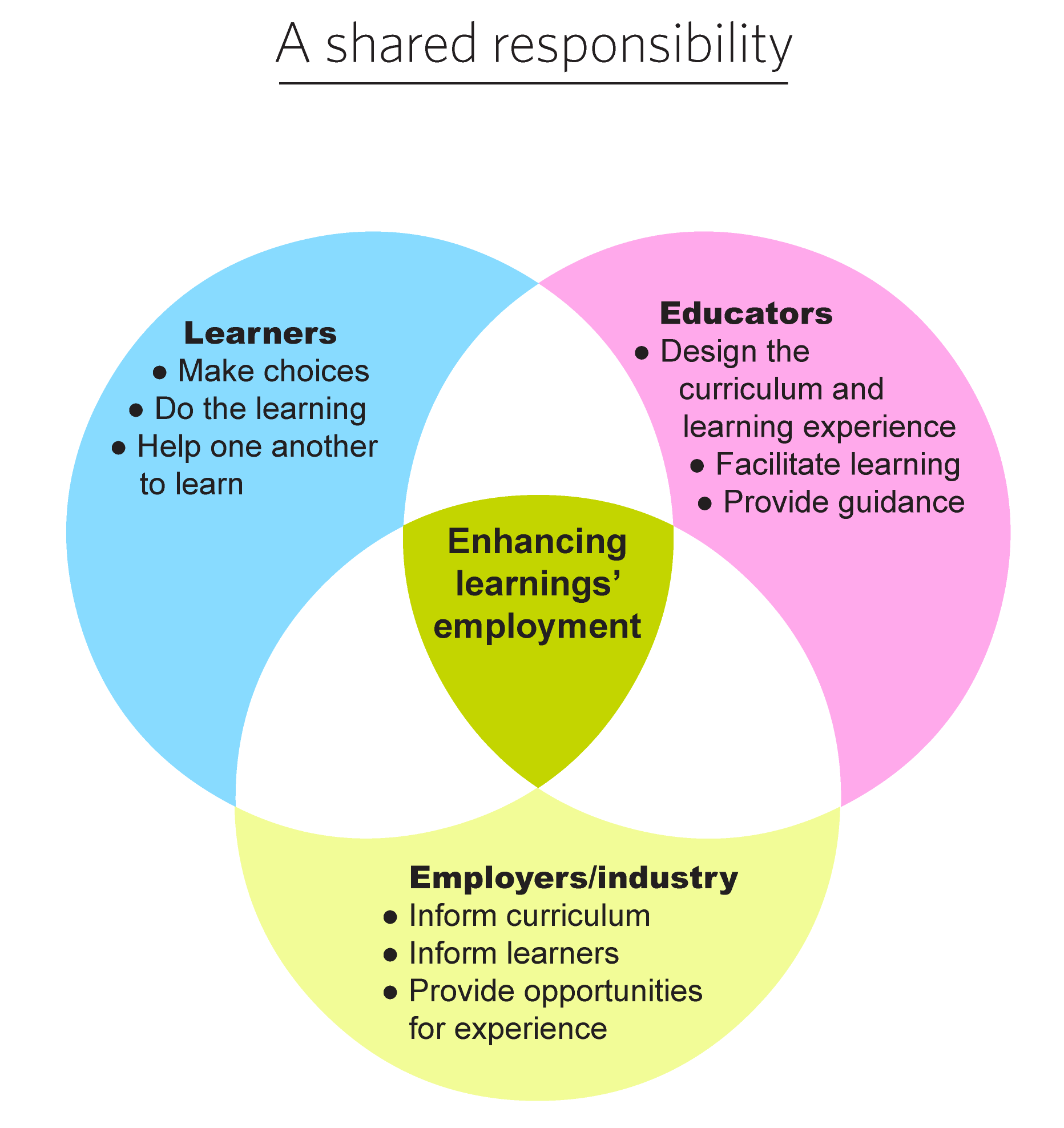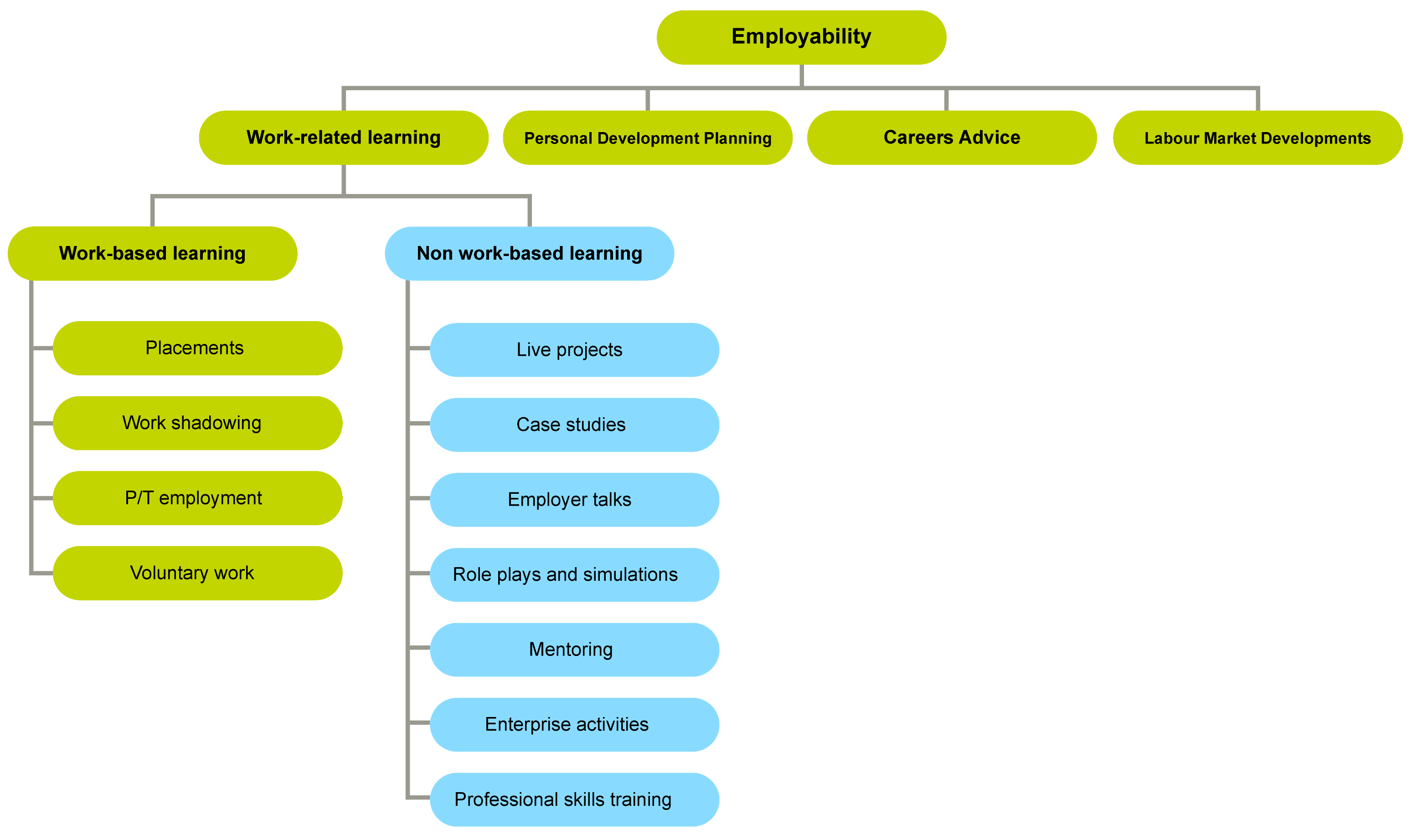-
The road to success
- “I just need a degree, don’t I?”
- “ A degree is no longer a meal ticket to your future but merely a licence to hunt.”
(Linsey Perry, Rail Track, quoted in: Hawkins and Gilleard, 2007, p. 6) -
What's the competition?

-
What are you preparing for?
- 📹 The future of work
- 📹 How will the world be in 2020?
- 📹 Shift happens 2015
- You are preparing for jobs that don’t exist yet.
- You will need to solve problems we don’t know yet.
- You will be using technologies that have not been invented yet.
- Half of what you are learning now will be outdated by the time you graduate.
- By the age of 38 you will have had 10 to 15 jobs.
- 25% of you will stay with your employer for less than a year.
- 50% of you will stay less than five years.
- 📹 Did You Know?
Additional Information
- The top ten jobs most in demand in 2010 did not exist in 2004.
- A week’s information in a newspaper is more than any person in the 18th century would have come across in a lifetime.
- The information we create now is more than in the previous 5,000 years.
- The amount of technical information is doubling every 2 years.
XXXX -
Is it all worth it?
- “ While graduate employment in the short term will be affected by the contraction of the jobs market, in the longer term a degree is still a great investment.”
(CBI, 2009 a, p.12)- A degree is more than a pathway to a job; it is a “launching pad for lifelong personal and professional development.”
(Knight and Yorke, 2003, p.11)What is education?
- “Education is what survives when what has been learnt has been forgotten.”
B.F. Skinner, New Scientist, May 21, 1964 - “ While graduate employment in the short term will be affected by the contraction of the jobs market, in the longer term a degree is still a great investment.”
-
Use your university experience to shape your life
- University is…
- a preparation for the rest of your life
- a practice ground for work tasks such as communicating as a professional, making presentations, influencing, negotiating etc.
- an invitation to take risks
- “ Take big risks early on. Don’t regret anything and learn something from it. Bite off more than you can chew – and then chew like mad.”
(Hawkins and Gilleard, 2007, p.52) -
Are you ready for the real world?

-
The CBI skills survey
- CBI speaks for 190,00 businesses; employing 7 million people between them; founded in 1965
- 8th annual education and skills survey
- conducted in spring 2015
- responses from over 300 businesses collectively employing more than 1.2 million people
What are employers looking for? (CBI, 2015)
Employability skills/ attitudes/aptitude for work 89% (89% in 2014) Relevant work experience/ placement 64% (62%) Degree subject 62 % (68%) Degree result 55% (61%) University attended 17% (12%) -
The importance of work experience
- “High Fliers” Survey: 100 of the UK’s best known and most successful employers (2014)
- “A record 37% of this year’s entry-level positions are expected to be filled by graduates who have already worked for their organisations – either through paid internships, industrial placements or vacation work – and therefore are not open to other students”
-
Priority subjects for employers (CBI, 2015)
STEM
(Science, Technology, Engineering, Mathematics)40% No subject preference 34% Business 19% Social Sciences 5% Arts 1% Language 1% Some evidence of dissatisfaction
What do graduates need to improve? (CBI, 2015)Foreign language skills 54% (51% in 2014) Business and customer awareness 46% (53% ) International cultural awareness 39% (37%) Relevant work experience 43% (37%) Self-management skills/ resilience 33% (31%) Team-working 26% (19%) Knowledge about their chosen career 33% (30%) -
What is employability?
- “ A modern, competitive economy needs workers who possess skills, knowledge and attitudes they can take to any work situation and have the ability and willingness to continually adapt and prosper in a changing world.”
(CBI/ Universities UK, 2009) - “ A modern, competitive economy needs workers who possess skills, knowledge and attitudes they can take to any work situation and have the ability and willingness to continually adapt and prosper in a changing world.”
-

-

-
Have you got what they are looking for?
The ‘Big Seven’ employability skills
- 1. Self-management
- 2. Team working
- 3. Business and customer awareness
- 4. Problem solving and critical thinking
- 5. Communication and literacy
- 6. Application of numeracy and information technology
- 7. Entrepreneurship/enterprise
- 1. Self-management
- Are you ready to accept responsibility for your work?
- Are you assertive?
- Can you manage your time effectively?
- Can you improve your performance based on feedback?
- 2. Teamworking
- Do you respect and listen to other people’s point of view?
- Can you persuade and negotiate with others?
- Can you contribute to discussions?
- 3. Business and customer awareness
- Do you understand the key drivers for business success?
- Do you have good networking skills?
- 4. Problem solving and critical thinking
- Can you analyse facts and situations and develop new solutions?
- 5. Communication and literacy
- Can you express yourself clearly in writing and in speech?
- 6. Numeracy and IT skills
- Do you have mathematical awareness and basic IT skills that can be applied to practical contexts?
- 7. Entrepreneurial skills
- Are you creative and dynamic?
- Are you open to new ideas and make them happen?
- Are you prepared to take calculated risks?
- Can you be a leader?
-
What is employability?
A range of different views
- 📹 Ted Talk : Forget about employability. It’s all about mindset
- 📹 What is employability?
- 📹 Interview tips for graduates
XXX -
How can you learn these skills and attitudes while being a student?

-
How do you know you are getting it right?
- I feel optimistic about my career prospects.
- I have a good understanding of my personal strengths and weaknesses.
- I have a PDP (Personal Development Plan).
- My expectations about what I can achieve are informed by knowledge about the graduate labour market.
- I feel confident that I have valuable skills and experience to offer potential employers.
- I know where to get up-to-date information about graduate jobs and training opportunities.
- I have realistic expectations about the current job market.
- I understand which transferable skills I have learnt during my studies.
-
What will the future look like?
The 21st century view

Traditional view of a career path

- Used under creative commons licence
Attribution-ShareAlike 3.0 Unported (CC BY-SA 3.0) Author: Piotr Małecki- “There is no such thing as a career path. It’s crazy paving and you have to lay it yourself.”
(Skills for graduates in the 21st century, quoted in, Hawkins and Gilleard, 2007, p. 12) - Used under creative commons licence
-
References
- Confederation of British Industry (CBI) (2015) Inspiring Growth, CBI/ Pearsons Education and Skills Survey 2015; London: CBI
http://news.cbi.org.uk/reports/education-and-skills-survey-2015/education-and-skills-survey-2015/- CBI and Universities UK (2009), Future Fit: preparing graduates for the world of work, London: CBI
- Hawkins, P. and Gilleard, C. (2007) If only I had known: making the most of higher education, Association of Graduate Recruiters and Connexions; available from:
http://www.agr.org.uk/Content/If-Only-I-had-Known- High Fliers (2014) The Graduate Market in 2014, London: High Fliers
- Knight, P.T. and Yorke, M. (2003) Assessment, learning and employability, Open University Press and McGraw Hill Education, Maidenhead
- Confederation of British Industry (CBI) (2015) Inspiring Growth, CBI/ Pearsons Education and Skills Survey 2015; London: CBI